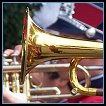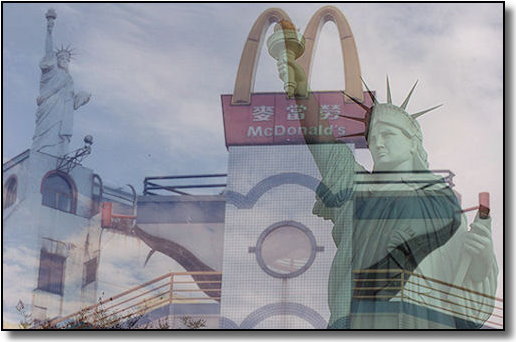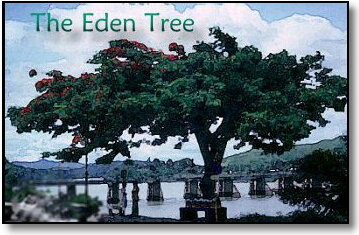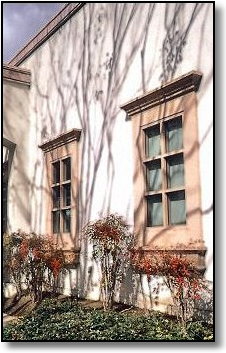 | ||||
|
|
Another AI-generated image from the words "a perfect book." A bit incorrect in the page folds, but still a pretty scene. You may click on any of the following links to excerpts from Dorothy's professional and personal writings or continue scrolling down the page: NEW IN 2021 - A book titled "At A Loss For Words: The First Three Years in My Mother's Struggle With Aphasia." For several years now I have been the primary caregiver for my mother, who suffered a stroke while in the hospital following heart surgery. This book is the story of how we worked through her aphasia during the first three years following that stroke. Read more below. Other sections of this page include: Graduate School Research and Theses, Trade and Investment in Japan: The Current Environment (1991 Study for the U.S. Chamber of Commerce in Japan and the management consulting firm A. T. Kearney), Notes on Change (1993 Newsletter highlighting the effects of technological change in a number of fields), Between Two Worlds (1995 short non-fiction/current events book), The Eden Tree (still-unfinished novel), and the first part of the summer 2004 essay series "Genes, Beans and Greens: A Taste of the Genetically Modified Foods Debate, Part I" (now found in the Essay Archives). To return to the previous "About the Site" page, click here.
This is a full-color, 24-page guide with basic tips for growing roses in Southern California. This was co-authored by Carolyn Elgar, Master Rosarian, and Dorothy Birsic, Consulting Rosarian, and published by the Orange County Rose Society (OCRS, www.orangecountyrosesociety.org) in 2022. The Guide is geared to the novice rose grower or a person with some basic experience in growing and caring for roses. Topics covered in the book include types of roses, choosing and planting a rose, common disease and insect problems and remedies, other basic aspects of rose care, and pruning. The booklet also includes a list of Southern California rose societies and their contact information. Copies of the Guide to Growing Roses in Southern California can be ordered by clicking the link from the home page on the OCRS website. The recommended donation per booklet is $5, and there is a minimum fee of $2 for shipping. Questions about the booklet may be directed to the OCRS using the website "contact" page.
During the pandemic in 2021, Dorothy completed a book titled "At A Loss For Words: The First Three Years in My Mother's Struggle With Aphasia." The book is the story of the first three years in one family's struggle with aphasia - understanding it, learning to cope with it, and finding the resources to deal with it - told from the perspective of a daughter/caregiver. Aphasia was not a word that was familiar to any of us when it was first introduced to us after my mother's stroke. Even after being given materials to read for a cursory introduction to the condition it was difficult to understand. But why even talk about aphasia? Because the number of people living with aphasia is astounding. The National Aphasia Association (www.aphasia.org) estimates that there are at least two million people in the United States and 250,000 in Great Britain who have aphasia, and that more people have aphasia than have conditions such as cerebral palsy, multiple sclerosis, Parkinson’s disease or muscular dystrophy. However, few people are familiar with the condition. The National Aphasia Association’s 2020 survey of aphasia awareness (available at www.aphasia.org/upcontent/uploads/2020/05/aphasia-2020-survey-results/pdf.1) found that more than 86% of people surveyed had never heard of aphasia and only seven percent of those who had heard of it could identify it as a language disorder. GRADUATE SCHOOL RESEARCH AND THESES At the Fletcher School of Law and Diplomacy (Tufts University), the master's degree thesis is known as the M.A.L.D. Candidates for the Master of Arts in Law and Diplomacy degree have the option of writing one full M.A.L.D. or two half M.A.L.D.s. I chose the latter. The topics (and a short description of each) are as follows:
* James N. Rosenau, "The State in an Era of Cascading Politics" Comparative Political Studies 21 (April 1988): 15
Other topics of research at both the Fletcher School and the Harvard Business School focused primarily on technological change, international trade and issues concerning sovereignty. These topics included:
This was a study completed and published in 1991 for the U.S. Chamber of Commerce in Japan by the management consulting firm A.T. Kearney. It contained information about the competitive environment for U.S. companies doing business in Japan, factors for success and market impediments. Although I was a primary author of the study as an A. T. Kearney consultant in Japan, I do not hold any copyright privileges for the document, so I will not provide any excerpts. Please contact either of the organizations mentioned if you are interested in the report. For your information and clarification, a view of the cover of the report is provided here. To read news coverage about the release and content of this study, please refer to the front page of the New York Times for Wednesday, June 12, 1991 ("U.S. Companies in Japan Say Things Aren't So Bad"), the business section of the Los Angeles Times for the same day, and page D3 of the Los Angeles Times for September 16, 1991. To return to the top of the page, click here. This was a short-lived newsletter focusing on the impact of technological change on our lives. In the October 1993 issue, which concerned changes in communication, information and transportation, I wrote: "In many places on this planet, a person can walk out the door of the most sleek, modern jet plane, take a few steps past the runway, and find himself or herself deposited in a world far different than any he or she has ever known. Take the country of Nepal, for example. Once a person goes beyond a certain point outside of a small number of main cities, there are few roads of any sort. Passage for humans is strictly by dirt path and on foot, while goods are transported to distant villages on the backs of animals. It is not uncommon to come across signs [such as the one included in the newsletter] offering the visitor a brief word of welcome, directions and travel times to certain destinations. In a way it is like stepping back hundreds of years in time to a period and place where the conveniences of modern transportation and communication do not exist. High in the mountains there are no cars and no phones, and there is no faxing ahead for reservations at the next rest stop. A person walks as fast and as far in a day as his or her legs will travel, then stops for a night's rest before beginning the journey again in the morning. There are few, if any, detailed and grid-lined map guides to the trails. Instead, trekkers rely upon experienced guides (sherpas) to navigate the routes and point them in the right direction. . ." "No one can say with any great certainty what new discoveries or developments may come 100, 50 or even 25 years from now, or how they might affect human lives. As a result, the 'sherpas' of our institutions may face territory which is uncharted at best, or at least resemble little of what had been seen in the past. If so, the signs by the road will be welcome, but they will be able to provide only a partial idea of what lies on the journey ahead." To return to the top of the page, click here. This book was designed to be a quick introduction to issues of technological change for people who might not be inclined to read something on the subject that they couldn't finish in a few hours or a day or two. In the introduction, I said, "This book makes no attempt at being an academic treatise. It is not a book of numbers, and there aren't pages of charts and statistics to pore over. It could take a half-dozen or so good-sized volumes to thoroughly discuss all of the changes everywhere which have been brought about by technology, but many of those already exist. That is not the purpose of this book, either. Instead, it is designed for anyone seeking some type of understanding of the trends and dynamics which have shaped and continue to shape the world today. It includes a brief look at aspects of technological change in business, government and society. If the material piques interest or gives cause for further reflection, all the better. There are dozens of topics and concepts presented which the reader could explore easily and in greater depth (on his or her own). The dynamics of technological change are complex and uneven, as are its effects on human lives." EXCERPT FROM CHAPTER THREE, "BETWEEN DOMESTIC AND INTERNATIONAL" Corporation as "Person" and State as "Person" The notion of sovereignty is frequently cited in discussions of two particular issues: immigration and international trade. Because such a large portion of international trade is conducted by large corporations, it is perhaps easiest to illustrate some of the complexities and differences between domestic and international by looking at differences between states (nations) and corporations as legal "persons" on the global stage. This does not mean small companies are insignificant, for they are not. In countries such as the U.S., they are dynamic engines of opportunity and often rapid expansion. However, most of the discussion in the chapter centers around large multinationals with extensive business dealings in many sites around the world. The earlier definition of the criteria for statehood began by saying, ". . . the state as a person of international law. . ." Similarly, another "person" in domestic and international law is the corporation. To carry the analogy a bit further, these two persons are "endowed" with different "features" and are empowered to carry on their missions and duties in different ways. Using the United States and U.S. corporations as examples, one might first say of America as a "person" that it is a democracy. The legitimacy of its leaders is derived through popular election by a vote of its citizens. The leaders are then empowered to act based on the principles of government established in the Constitution, codified in a set of laws, adjudicated through a court system and administered and enforced through the executive branch (and law enforcement). At minimum, the role of this government is to protect the well-being and safety of its citizens and shores. The methods through which the government is allowed to carry out its duties include enacting and enforcing laws, levying taxes, entering into treaties and declaring war. The corporation gains its existence and legitimacy at first by being incorporated within a particular state, and it is subject to the laws governing commercial activity. It is also subject to the laws and regulations of the cities, counties, states and countries in which it does business. Its equivalent of a constitution might be its articles of incorporation, and its power is derived through the marketplace by providing goods and services desired by its customers. These goods are often identified by brand name or trademark, all of which are considered property when properly used or registered with the government. If the company ceases to generate profits in the long run it cannot exist as a viable entity, regardless of its brand name or articles of incorporation. The corporation's leaders are chosen by criteria determined within the organization (i.e. length of time with the business, revenue generated, track record, special skills and knowledge, or personal talents or proclivities). These people are generally not subject to vote or verification of the entire employee base of the company. Their corporate mission is to provide goods or services in a manner which maximizes profits and shareholder value. In order to do so the company must provide goods or services to the marketplace. It does so by marketing or selling them to the public, government or other companies and organizations. In a legal sense, the state has jurisdiction over its citizens and within its boundaries. It can apply its law to all those on its soil, be they citizens or foreign visitors. It can tax both people and businesses, but if more revenue is needed, it cannot go to a foreign country and tax the citizens of that country. A business or corporation, on the other hand, can seek its profits in nearly any location, assuming it meets the legal and operational thresholds of other countries. While each sovereign nation will act to protect its own "national interest" (which can be defined broadly or narrowly), each business will act to protect its own "corporate interest." Perhaps at the intersection of these two interests is the best illustration of where the lines of sovereignty, or the lines between (purely) domestic and international, begin to blur.
Statue of Liberty replica at Keelung, Taiwan, McDonalds superimposed on "Lady Liberty" statue, El Monte, CA, City Hall Overseas Influence and Activity Not to belabor the point, but a nation and its government, at least as currently conceived, exists and enacts laws for a particular population within particular boundaries. The only means through which a government has an official presence in another country in through its embassies (and consulates) and the people who staff them. These embassies are considered pieces of sovereign land on foreign soil. States such as California or other government organizations may set up overseas offices with permission. These offices, however, are generally not considered sovereign territory. A diplomat's personal expression of sovereignty is represented by diplomatic immunity, or freedom from prosecution under foreign laws (although this may be waived under some circumstances). Although countries can and do send spies into other lands, or pay informants for information, the only legally-recognized national government representation it is embassy system. A company can obtain a "piece" of a foreign market by providing consumers with products they choose to buy, but the only way a country can obtain a "piece" of another nation's land is through voluntary secession or war. A nation such as the United States may have influence over another country and its people by other non-official means, however. The strength of military forces or stockpile of weaponry could influence another's thinking or decision-making in regard to war. Its culture or values, as seen or heard through radio, television or motion pictures, or read in print, might affect the thinking of other governments or peoples. This is especially true if the materials are available in the country's native (local) language. Some non-democratic non-Western governments, however, have traditionally blocked access to information not in agreement with official state teachings or policies. During the course of the Cold War, radio broadcasts from the Voice of America to countries such as those behind the Iron Curtain frequently were jammed. Foreign magazines or other non-native materials were often confiscated, if found, at international borders. Finally, sources of influence might be exerted through the advanced nature of a country's industry or technology, by the moral strength of its people, or through mutually shared customs, traditions or religions, to name a few. Unlike a government, a business or corporation can have a legal presence in most nations, given that the rules and regulations set forth by those nations are followed. That is not to say that certain countries do not maintain policies or practices which protect domestic industries or restrict foreign competition, for they do. Some mechanisms which have been used by governments to protect their "national interest" from foreign business include: import restrictions, tariffs (which make the cost of foreign goods higher than prices of comparable domestic ones), threats of nationalization (businesses being taken over by foreign governments) and restrictions on profit repatriation (returning profits made in an overseas market to a home country), to name a few. More commonly, though, governments have sought to further the national interest by seeking trade or other policies breaking down barriers for their country's companies in foreign markets. To return to the top of the page, click here. This is a still-unfinished (and still almost completed) novel begun several years ago. It chronicles the story of Ashley, Marco, some computer software and a very large tree at a place called the Corrigian Institute. In essence, it is a tale of ideology and its impact on people's lives. This excerpt is an extended Chapter 1 excerpt, along with a few added pages, to give you an idea of how the story begins . . . * * * The bright white lights that bathed the hillside in a celebratory glow filtered down in a twilight haze to the quiet cities in the valley below. Springtime had been kind to the area, fully endowing the environs with bursts of coloful and pungent blossoms. The evening aromas of jasmine and honeysuckle danced across the grasslands like the bow of a virtuoso style="margin-right: 20; margin-left:20" violinist, touching down here and there in a sweet symphony of scent. Fading in and out, now softer, now more intense, the fragrant melody swept in and out of the open windows like a siren's song, luring the tempted out to the open-air festivities. Few needed the extra call to the events that were about to begin, for it was the grandest night of the year. The fact that the plants cooperated in offering up their intoxicating aroma only added to the gayety of the evening. The time had come for the annual procession of graduates down from the Institute, or the massive hilltop complex everyone referred to as the Institute. The full name of the campus was the Corrigian Institute for the Development and Propagation of Higher Knowledge. It was the preeminent institution in the land for educating the scions of the present, the creators and parents of the future. The buildings of the Institute stood on the first of three consecutive hillsides. The second and third carried the weight of the government offices and religious orders. Although equally splendid in their architecture and dignified in their duty, that evening they did nothing but fade into the recesses of the dark background at the edge of the halo of light encapsulating the Institute. It was said that the Institute had been built on a sight that in antiquity was thought to be the summer home of the gods. The roots of the celebration drew upon an ancient festival which welcomed the deities and prepared their way back to the area. Now, however, the path was somewhat reversed. Instead of people ascending the mountain-like hillsides to light the way home, the soon-to-be graduates of the Institute made their way in a long, winding procession down to the valley below. It was their symbolic return to the world which hesitated to embrace them as the people they were when they left but could not yet embrace them as those that they would be. The lights surrounding the Institute bounced their golden rays off the gleaming white marble towers and sleek, dark-windowed structures atop the hill. It made the buildings look as though some giant sun had ascended from the depths of the earth at the height of the evening. Most referred to it as the annual sunrise at sunset. Thousands of glowing lights, each set atop a carved white column, consecutively dotted the path winding down to the open fields of the valley below. At the base of the path's descent, about one half of a mile from the edge of the largest city, a huge tent had been erected for the final rites of the ceremony. Nearly a thousand white slat-backed chairs filled the space under the white canvas canopy with the scalloped yellow trim and fringe. The dais, decorated with white and yellow roses in front and willowy clusters of pampas grass behind, stood a foot or two above the tops of the chairs. The empty seats on the platform faced forward in gaping anticipation of those who would soon fill the vacant spaces. As a phalanx of trumpets blared from the top of the hill announcing the beginning of the descent, the floodlights surrounding the canopy were lit. They created a panoply of lights like a homing beacon signaling to some distant ship from the shore. Although the initial rites beginning the graduation process were closed to all but the students and Institute staff, families, friends and spectators gathered eagerly at the base of the hill. They all stood behind a braided gold rope staring intently at the oncoming procession. No one in the crowd was as excited to see the students of the Institute as 22-year-old Ashley Montag. As she stood at the front of the rope, hands clasped in a white-knuckle grip around the thick braided strand, the breeze gently blew wisps of her long, wavy brown hair across her face. She waited for no one in particular. She knew no one in the crowd save for the locals in the city who had come as spectators. Yet at the same time she was more mesmerized by the oncoming spectacle than anyone in the crowd. The sweet tension of anticipation pulsed through her body because she knew that in a short time she would be on the other side of the rope. It would be her turn to walk down the hill as a graduation candidate of the Corrigian Institute for the Development and Propagation of Higher Knowledge! The thought was almost too much for her to stand. As the scent of jasmine and honeysuckle suddenly filled the air around her, she felt as light-headed as a teenager in the front row of her idol's rock concert. She quickly gathered her wits about her as the procession began to pass. The somber graduates-to-be slowly filed by the rapt spectators, each chanting the school's anthem like a solemn mantra of a devoted faith. "The devotees of knowledge old . . . Do take upon a new course bold . . . The cycle of the time unfold . . . A Corrigian spirit to uphold . . ." Ashley watched the students file past, each carrying a tall, lit candle in one hand and a book bound in black leather in the other. And still there were the necklaces - or medallions. No one was exactly sure what to call them. Each year it was the same pattern. The students wore, on thin gold chains around their necks and draped out over their flowing black robes, tiny crystal boxes suspended on gold chains. In the light of the candles and lamps along the path, they sparkled more brightly than the most finely-cut Waterford. Inside each box was what appeared to be a small, dark kernel, smaller than the nail of one's little finger. Most thought they looked like coffee beans, though not nearly as smooth in texture. Besides, people reasoned, why would graduates of the preeminent institution celebrate one of the most important days of their lives by sticking coffee beans in exquisitely-crafted crystal boxes of untold value? It had to be something else, but it was something known only to those affiliated with the school. No one was allowed to comment on it, and people knew better than to ask. Year after year, people in the front of the procession wore many of the boxes -- some carried ten of them draped around their necks -- while others, on occasion, had one or none. Their place was always at the back of the line. It was almost hypnotic, watching the sparkling cubes bounce up and down gently to the cadence of the slow-moving procession. Slowly Ashley counted: One, two three, four, five, six, seven . . .eight. The man walking by was wearing eight of the crystal boxes. She looked up briefly to see his face, and their eyes met and locked for a split second. To Ashley, she had just seen the face of Adonnis. Even in the dim light the dark pupils of his light hazel eyes sparkled with a greater fire than the glass beating against his chest. His nose and chin were chiseled more perfectly than all the statues of the ancient Greek gods, and his skin, though taught against his upswept cheekbones, showed not a crease nor a hint of the slightest line. In the split-second appraisal of Ashley as he passed the crowd along the ropes, he found the face of the stranger more than to his liking. One by one, the last of those in the procession filed into their seats. The dignitaries, wearing black robes capped with hoods of yellow and beige satin, then took their places on the dais. They each placed their long, thick candles on the polished brass stanchions behind their seats. The candleholders stood at varying heights, from the tallest in the middle tapering down gradually toward the platform at each end. After all the students had arrived at their places, the ropes were lowered. Invited guests were allowed to sit in the seats immediately behind the graduates-to-be. All others took places behind them. Since Ashley had been standing at the front of the crowd, she stepped forward quickly to find a place. They were all filing in from a pathway on the left side of the tent. However, Ashley saw a few open spaces further up on the opposite side and quickly skirted the back row of chairs to fill one of the more desirable empty seats. Before she sat down, Ashley scooped up the Commencement program which had been placed on the chair. On the cover it said, "Commencement Exercises, 195th Class of the Corrigian Institute for the Development and Propagation of Higher Knowledge." Below the title was the Institute seal, a large gold circle and design, embossed into the thick paper cover of the program. In the circle at the outside rim were some Latin words which she didn't understand, and at the center of the seal was a huge tree. It was unlike any she'd ever seen before. At first she thought it might be an oak, its thick trunk supporting sturdy branches which billowed upward and outward like the rounded puffs of a cottony cloud. But then she noticed the tiny details of little star-shaped figures among the branches and leaves of the embossing. It was impossible to tell whether the figures were fruit or flowers, but they were nothing like anything growing in their quiet little town. While Ashley poured over the details of the program, she was unaware that another pair of eyes were studying her with equal intensity. The student with whom she had locked eyes during the procession was sitting across the aisle and up a few rows. As he was taking in the preordained pomp and captivating circumstances of the evening, he had happened to glance over his shoulder at the faces in the crowd behind him. Although pleased to see the beautiful woman again, he was not overly surprised. After all, those kinds of things happened often, and he took it as another sign from that unknown hand that seemed to guide his fate. Without being stridently obvious to those seated around him, he studied the details of his unknown goddess with the long, dark and silken wavy hair. He watched as it slipped down over her shoulders when she bent forward to pick up a slip of paper. His map-maker's eyes studied every inch of the relief of her profile: the gently-sloping dip of her eyelashes, the soft, rounded tip of her nose, the deep, dusty-rose color of her pouty lips, the gracefully arched curve of her chin. It was the outline of a land he hoped someday to visit. * * * . . . Fast forward through the middle of the ceremony. Ashley had tried to catch the name of her Adonnis as he went up for his diploma, but she couldn't hear what was said. And so the story continues . . . Not more than three miles away from the brightly-lit tent, on the darkened front porch of a small but cozy home set peacefully on a hillside overlooking the valley, Martin and Doreen Montag sat quietly and gazed out at the Institute lights. For a long time they just sat, looking, watching and letting the breezes wash over them like the ebbing and flowing spray of the waves hitting the shore. When Martin turned to look in his wife's eyes, he could see the reflection of the distant torch lights lining the path down from the Institute. "You're thinking about her, aren't you?" he said softly to his wife. "You mean Ashley?" she replied, turning to look in his eyes and snuggle a little closer. "Of course I am. Aren't you?" "Sure. On a night like this, what else? I just can't believe that next year we'll be down there watching our little girl graduate instead of up here staring at the lights." "You're at something of a loss, aren't you dear?" Doreen cooed to her husband, not wanting the comment to sound like an insult. "I mean, you're so happy and proud of her, yet at the same time you don't know how to advise her about what to do, right?" Martin nodded. "It's just that they're so damn secretive about it all, Doreen. Nobody really knows what goes on up there, and the kids don't talk. Yet at the same time it's one of the most hallowed institutions anywhere. They go in and poof -- they come out the future leaders of the land." "And what's wrong with that?" "Nothing, I guess. It's just that as her father I want to be able to give her something else of value, something to take with her -- and I just don't know what that might be." "Let me ask you something," Doreen said, leaning over to pull a photograph out of her purse. "Do you remember this?" she asked as she handed him the picture. Martin took the picture and held it at an angle so as to see the images a bit more clearly in the dim evening light. "Oh, sure. That was us with her on her first day of high school. Yeah, I remember that day well." "And do you remember what you told Ashley then?" Doreen asked. "Let me think . . . I told her to relax, to work hard, to be herself, and that no matter what we'd always be here for her." "And?" "And it worked then . . ." "So what's wrong now?" "Well, it's just that . . ." "It's just that what, Martin?"
Photograph (left) "Winter Shadows on a White Wall" © 2007 Dorothy A. Birsic "But it's not us they've accepted, dear, it's Ashley." "True, but that won't keep me from worrying about her, you know." Doreen snuggled a little closer to her husband on the swing and gently carressed his arm. "I know. She'll always be your -- our -- little girl. But in case you hadn't noticed, she is really her own woman now. She's not a little kid. Besides, she'll be less than three miles away from us at one of the most esteemed institutions anywhere. It's hardly a case for what I'd call unnecessary parental paranoia." "Ah, yes, the dreaded U.P.P. syndrome," he said with a laugh, bringing his wife even closer in a warm, lasting hug. "As always, dear, you are right. I'm sure this will be one of the most valuable learning experiences in her life. I just hope we can be there for her if and when she needs us." "We always have been," Doreen said, then added with a mixture of heartfelt remorse and deep parental pride, "I know your frustration, dear, but look at our daughter. She's already gone much further than either of us did. Neither one of us went to college, and she already has her degree. She's met more different people from more different walks of life than we probably ever will, and she's come through it all with a pretty good head on her shoulders." Martin paused in contemplative thought for a few seconds. He gazed out at the lights, wondering what the fortress on the hillside held in store for his daughter. At the same time a pang of remorse coursed through his body with the realization that there was nothing he could or needed to do. He sighed at his wife's comment, "Yeah, she has, hasn't she . . ." His voice trailed off as his gaze held steady on the lights' mesmerizing glow. The two sat in each other's arms for a while longer, watching the lights and letting the breezes course over them. Before long, the faint strains of ceremonial music danced over the valley in their direction. At first the sounds were barely audible, then grew as the bright display of fireworks burst forth onto the pitch black canvas of the sky above the canopy. "It looks like the Commencement program is going to end soon. Do you want to wait up?" Martin yawned. "No, I'm pretty tired, too. Maybe I'll just head in with you." They both stood up from the porch swing and after stepping inside the house, Martin firmly closed the screen door behind him. He waited for his wife to make her way to the bedroom before turning off the lights. He did so just as the last of the fireworks flickered out over the edge of the horizon. A warm round of applause rang out from under the canopy as the music faded along with the cascading streams of brightly-colored embers. Undisturbed by the lowland breezes, the fireworks had flown in just the right location so that the people under the tent didn't have to crane their necks to see them. As the applause died down, the Institute's Dean once again made his way up to the microphone. "To the Institute's newest alumni, we congratulate you again. On behalf of the faculty and staff of our institution, we also thank all of our friends who were able to join us this evening. This concludes our ceremonies for the 195th annual Commencement. Thank you again, and good night." In accordance with tradition, the graduates and entire audience rose. As one final round of applause rang out, the deans and dignitaries filed out to the strains of the Institute's anthem. In a still, solemn, dignified procession, they marched down the center aisle, first past the newly-graduated members of the Institute family, then past the guests. Beginning with the two now ex-students who sat in the front row, the new graduates on the left and right stood to face each other, then also exited down the center aisle. The crowd held its sustained applause until the last of them had passed. They then also left the canopied area down the center aisle and out the side sections from which guide ropes had been removed. Ashley's eyes were aglow and her heart was raicng. For the first time since she had received the letter granting her a space in the next year's class, she could actually picture herself at the Institute among the students. It was then that the thought struck her as to how little time she had to prepare. "My gosh," she gasped, look at the date embossed in the program she clutched in her hands. She realized that she had less than two weeks before she made her trek to the top of the hill. Everything seemed to be happening so quickly. Ashley started thinking about the smaller details like the clothes she'd wear and what she'd pack. Then, with a tinge of trepidation, she also thought about the broader purpose of her being at the Institute and what it might mean for her future. In her mind, she could easily picture the first Institute meeting she'd attended -- the one in which the Admissions Director personally told her of their desire to have her on the campus. As she walked toward the parking lot, her thoughts skipped back to that day . . . "And so you see, Ashley, for investing a total of about 12 months of your life, you'll be a part of something much greater than yourself which will pay dividends virtually for the rest of your life," the woman from the Institute had explained. Ashley studied the tall, reedy woman with the fine cheekbones and the reddish-brown hair as she talked. The occasional gesture -- the flip of a perfectly manicured hand, a light touch on Ashley's shoulder -- were done with a studied ease and eloquence. The small diamond and pearl pendants of her dangling earrings fell barely a half an inch below the lobe of her ear yet bobbed back and forth as she spoke and turned her head. Her diction was that of an upper class finishing school, her voice at its most sincere when she said, "So you see, young lady, we would very much like for you to be part of the Institute family." For a second Ashley had been dumbfounded. She hadn't expected such an immediate invitation to be extended to her so openly or so quickly. Stumbling over the words for a response, she blurted out, "But Mrs. Holdsworth . . ." "Please, call me Giselle." "OK, Giselle. Why me? I mean, well, sure I've grown up practically underneath the hillsides of your Institute, but I've never been up there. And, well, I'm familiar with at least a partial list of your graduates. I mean, who isn't? And me -- there -- it's just so sudden and I'm so surprised, if you understand." The Admissions Director again cupped her hand around Ashley's shoulder as a gesture of support. "I understand your concerns, dear, but you have to believe that we have only your best intentions in mind. You see, it's become quite important to the Institute that we extend the benefits of our teachings and vision to a broader community at large. And we thought there would be no better place to begin than within the immediate community surrounding the campus. We've been quite impressed with your accomplishments and feel you would make an excellent candidate." "But if you'll excuse me Mrs. - ah - Giselle, I don't mean to be rude," Ashley said, slightly puzzled. "I don't remember submitting anything to you. However, if you or somebody there has taken the time to find out so much about me, you've certainly come to know that I, er, my family, ah, well - we can scarcely afford a place like the Institute. It's beyond us in many ways." Giselle Holdsworth smiled a warm but knowing smile, nodding her head as Ashley spoke. "I understand what you're saying, but let me assure you that the year would come at absolutely no cost to you." Ashley was stunned. Gratis? For free? No cost? She didn't know what to say, so she let Giselle continue. "This is something the Institute has been building toward and would like to continue on a larger scale given our findings." "Findings?" Ashley asked. The Institute's Admissions Director paused, as if doubling her caution in choosing her words. "Well, you see, we've come to the firm conclusion that there are many who could benefit from being a part of the Institute -- and we from them, of course. Those people are the same ones who might not be able to be here any other way. And this region is quite bursting with talent, so . . . we're determined to see our plans through. You, my dear, were one of the young people whose name came across our lists quite often, and for different reasons. We were all quite impressed with your background." "Oh, I see," Ashley demurred, still not sure what she should say. Although she realized the honor being accorded her, some small part of her remained steadfastly skeptical of the outright flattery. "You know, of course, that I'd like to talk this over with my family before making a decision," she said quite gracefully, mustering all the charm she so easily commanded. "Would it be possible to call you by the end of the week with my answer?" The Admissions Director stretched out her thin hand to Ashley, and as she shook it, the tall woman cupped her other hand over the younger woman's steady grasp. "I'll look forward to hearing from you," Giselle replied, then turned quickly and rejoined her colleagues on the other side of the room. Ashley had walked away then much as she was walking away that evening -- in a state of semi-euphoria and elated disbelief, with a hint of trepidation tossed in on the side. Still, there was nothing that could spoil that night for her. Deep in thought, the inner glow of her excitement seeping out through the sparkling glint in her eyes, she didn't notice that she walked within a few feet of her black-robed Adonnis. He noticed her, however. Not wanting to call out to the beauty he'd never met and might never see again, he settled for letting his eyes walk away with her. "Taking a little personal enjoyment time amidst all the festivities, are we?" burst the familiar woman's voice into the bubble of his private thoughts. He knew who the voice belonged to. Instead of turning toward her immediately, he chose to let his eyes linger a few seconds longer over the wavy-haired woman as she disappeared into the crowd. Then he turned to the other woman who was now practically breathing down the back of his neck. Putting on his most charming mien, he spun around and looked directly into the eyes of the Admissions Director. "Hello, Giselle," he said cordially but with little emotional overtone. "I thought you would have left by now. The ceremony was quite grand, wasn't it?" "Oh, certainly," Giselle replied. "It always is. But I've been watching you for a couple of minutes, and I'd say you have something grander on your mind than grandeur. Why didn't you introduce yourself to her?" "To whom?" he asked, rather embarrassed that she'd caught him watching her. "Oh, you mean the woman with the long, wavy hair?" he continued, his mind racing in search of something to say. Giselle nodded, smiling to herself that she'd caught the young Adonnis off guard. "Don't go jumping to any conclusions, Giselle. She just looked a lot to me like someone -- well, someone I knew a long time ago." "Judging by the intensity of your gaze, I'd say it must be some memory," the woman mused, locking eyes with the young man. "Now Giselle," he began, trying to find some way to exit from their conversation. Luckily for him, one of the Institute deans interrupted, pulling her away to meet a visiting dignitary whose son was on their list of desired candidates for the Institute. "If you'll excuse me," she began, and before he even had the chance to reply, she was gone. "But of course . . ." he whispered to no one in particular as he turned his attention back to the place where he had last seen Ashley. He hoped to catch one last glimpse of her, but she was gone. That didn't mean he could -- or would -- completely put her out of his mind. * * *
"Days of Wine and Roses," digital art © 2011 Dorothy A. Birsic . . . Fast forward again to the morning after the ceremony. Preparations are being made downtown at the city's main hotel for orientation meetings for the new students, including Ashley. And so the story continues once again. . . Giselle turned quickly when she heard the faint rap on the partially open suite door. Seeing that he was in the right place, Marco nudged the door open just far enough to slink into the room that the Admissions Director and her staff were assembling. Giselle was about to welcome Marco when a shrill screech of metal against metal pealed out from behind her. A room partition being pushed into its hidden recess had suddenly gone off track. The statuesque Admissions Director covered her ears and turned abruptly toward the hotel's workmen. "Hector, what are you doing with that, pray tell? I thought I told you to be careful!" The portly middle-aged man in the beige maintenance overalls was red in the face both from the strain of pushing the heavy folding paneling and the embarrassment of having shoved it the wrong way. "I'm sorry, ma'am," he apologized profusely, "but this equipment is old, and we are trying to make do . . ." He was about to continue when another employee stepped up to help him. "Hector, my man," he said out loud, giving him a pat on the back, "this just happened to me the other day. Here. Let me show you what to do." As Hector moved back toward the panel, the other man quietly whispered to him, " Just follow me. I'll show you what to do." The two pulled, then pushed the paneling, and it slid back into the track. "So sorry again, ma'am," Hector said. "Give us another minute or two and it'll be back the way you want it." "Thank you. I appreciate that," she replied icily. Giselle turned back around to find Marco sitting down behind the table in front of which she was standing. As she was talking with the workers, he had been studying her with his own brand of sleepy-eyed morning curiousity. She had looked quite stunning the evening before at the Commencement ceremony. Her tall, slender figure had been nicely accentuated by the fitted silk dress she had been wearing. The sleeves came just far enough off her shoulder to expose the appealing glow of her gleaming white skin. Although she hadn't worn a necklace to to accentuate the understated hint of cleavage the dress revealed, the long, dangling diamond earrings she did wear were a tribute to her taste. They sparkled brightly and lit up her eyes, speaking of a summed value greater than that of each individual stone. Just like the twinkling embers of the fireworks faded as they dropped to the earth, the ethereal creature of the previous evening had now become a picture of pin-striped professionalism. Her body was sheathed in a highly-tailored gray suit, and the dangling diamond earrings replaced by a pair of pearl studs. Marco was amazed that she showed no outward sign of wear from the night before. She was sharp as every as she surveyed the progress in the bustling room. He watched as she turned toward him. His eyes studies every expression on her face in the few seconds it took for her to realize where he was sitting. "Oh, there you are," she said warmly, then added with a hint of exasperation, "I'm so sorry about that. It's been one thing after another all morning." "What, not happy with the hired help?" he said playfully. "Don't forget that includes me, too." "Why, my dear," she began, not letting her eyes waver from his. "You haven't done anything to displease me yet, have you . . . except perhaps for that ghastly stubble all over your face." They smiled at each other. "Ah, yes . . . Well, you convinced me enough of the legendary dedication of Institute graduates to get me here at eight in the morning after the night of my graduation. You did not, however, say anything about having to shave." "Oh, I didn't, did I?" she mused, studying the young man's face. As he sat reclined in the chair, shirt slightly unbuttoned and dark stubble accentuating his chiseled jawline, she felt terribly drawn to him. She only hoped that not a drop of the martini of thoughts stirring in her mind would spill from the glass of her eyes. As with all the students, past and present, there was always talk of what the other staff referred to as "Higher Plans." She dared not interfere with such a fickle fate. "Well, I suppose I can let it slide this morning," she said with a quiet laugh. Then, with dead-earnest seriousness, she added, "But don't you think you can come in during the week looking like that. You know how important this week is -- both for us and for the incoming class. The private interview sessions and orientation are a crucial first step in bringing everybody on board, and everything has to be just right." She finished her remarks with the crispness of a drill sergeant, almost not realizing the tension in her voice. Marco was aware enough to interpret and understand what he heard. He took it upon himself to put her at ease. "Relax, Giselle. Everything will go just fine. I'm sure of it." The statement struck Giselle as being as much ironic as it was comforting. She smiled again. "What? What is it?" Marco asked, curious as to the sudden change of expression on her face. "Oh, it's nothing. I was just thinking to myself what a horrible task master I must be. First I enlist your help during finals, then I demand you be here early the morning after your commencement. After all, you must have had quite a celebration after the ceremonies . . ." She stopped mid-sentence, waiting for his reaction. He studied her again, then offered little in the way of a response. "You might say so," he replied with a hint of a smile. Sensing she'd get no more from him, Giselle changed the subject. "You know, it's still pretty early. Can I get the Institute's newest alumnus a cup of coffee?" Marco nodded. "There's a little cafe in the lobby donwstairs. How about if we go there? Would that be OK with you?" "Fine with me," he sighed and slowly rose to his feet. As he stood and leaned forward, his loose shirt draped away from his body. For a second it revealed a toned, muscular torso accentuated with thick, dark hair. "Oh . . .," she began, and he looked up in time to catch her drifting eyes. "Marco, why don't you bring that box which is at the far end of the table there. It has some of the materials we need to to over anyway, and we can do that downstairs." He picked up the box and began walking toward the suite door. Giselle quickly excused herself and went over to speak with the workers. They'd managed to fix the first room divider and were beginning to wheel back a second. She gave them a few brief directions, then joined Marco at the doorway. The two walked side-by-side from the ballroom suite out onto the plush, subdued dusty rose carpet of the mezzanine. The Old Harbor Inn was the oldest hotel in town, and certainly its most grand. Its patrician elegance lent an august air to events which the Institute hosted there. Although the Institute administration let none of its instructional materials, methodologies or matters off the hilltop campus, its faculty and staff did find occasion when some of its business affairs were more conveniently handled in town. For those occasions, the Old Harbor Inn was its mainstay, and the annual orientation and welcoming week programs for incoming students was its biggest event of the year. During that one week in June, the major part of the hotel was taken over by the Institute and its staff. The 300 students who would make up the new class would make their way one-by-one to the building to be primed on the year which awaited them. TO BE CONTINUED ! ! To return to the top of the page, click here. To return to the main "About the Site" page, click here.
"Like" www.dorothyswebsite.org on FACEBOOK! Home |
Essays | Poetry | Free Concerts | Links | 2024 Extras |
About the Site |
|||
 | ||||
|
www.dorothyswebsite.org © 2003 - 2024 (except AI images) Dorothy A. Birsic. All rights reserved. Comments? Questions? Send an e-mail to: information@dorothyswebsite.org | ||||







 NEW!
NEW!  NEW!
NEW! 


 "It's just that this is so . . . different. Before, that was just the local high school. You went there. I went there -- we knew what it was all about. This is another
story altogether. Ashley is the first local person they've ever taken, and we're still not sure exactly why. Heaven knows we can't pay for it, and most of those other kids who will be there, well -- we don't even travel in the same circles as
their parents' butlers and chauffeurs, let alone the parents."
"It's just that this is so . . . different. Before, that was just the local high school. You went there. I went there -- we knew what it was all about. This is another
story altogether. Ashley is the first local person they've ever taken, and we're still not sure exactly why. Heaven knows we can't pay for it, and most of those other kids who will be there, well -- we don't even travel in the same circles as
their parents' butlers and chauffeurs, let alone the parents."
